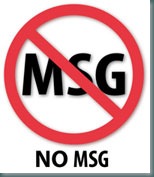May 7, 2008
PTSD common in chronic migraine sufferers
NEW YORK (Reuters Health) - Post-traumatic stress disorder (PTSD) is more common in people who suffer from chronic migraine headache than in those with episodic migraine headache, research suggests.
"Recent data suggest that PTSD may be more common in headache sufferers than in the general population," Dr. B. Lee Peterlin, of Drexel University College of Medicine, Philadelphia, Pennsylvania, and colleagues note in the journal Headache.
They assessed the relative frequency of PTSD in 32 patients with episodic migraine and 28 with chronic migraine. People with chronic migraine typically have headaches on 15 or more days a month, while people with episodic migraine have fewer than 15 days of headache per month.
Peterlin and colleagues report that significantly more subjects with chronic migraine than with episodic migraine had a history of depression (54 percent versus 22 percent).
There was no significant difference in the percentage of subjects who reported at least one significant traumatic life event (78 percent of episodic migraine patients and 79 percent of chronic migraine patients). The groups did not differ in terms of the average number of traumatic life events reported.
However, the frequency of PTSD was significantly greater in the chronic migraine group than in the episodic group (43 percent versus 9.5 percent). This remained significant after adjusting for depression and other factors that might influence the results.
PTSD may be a risk factor for chronic migraine headache, Peterlin and colleagues conclude.
"As a previous study has suggested that PTSD treatment alone can positively influence chronic pain conditions and disability," they add, "one of the implications of this study is that there should be greater consideration for the evaluation of PTSD in chronic migraine patients, as well as for the use of cognitive/behavioral therapy (alone or in combination with drug therapy) in this subgroup of headache sufferers."
SOURCE: Headache, April 2008.
